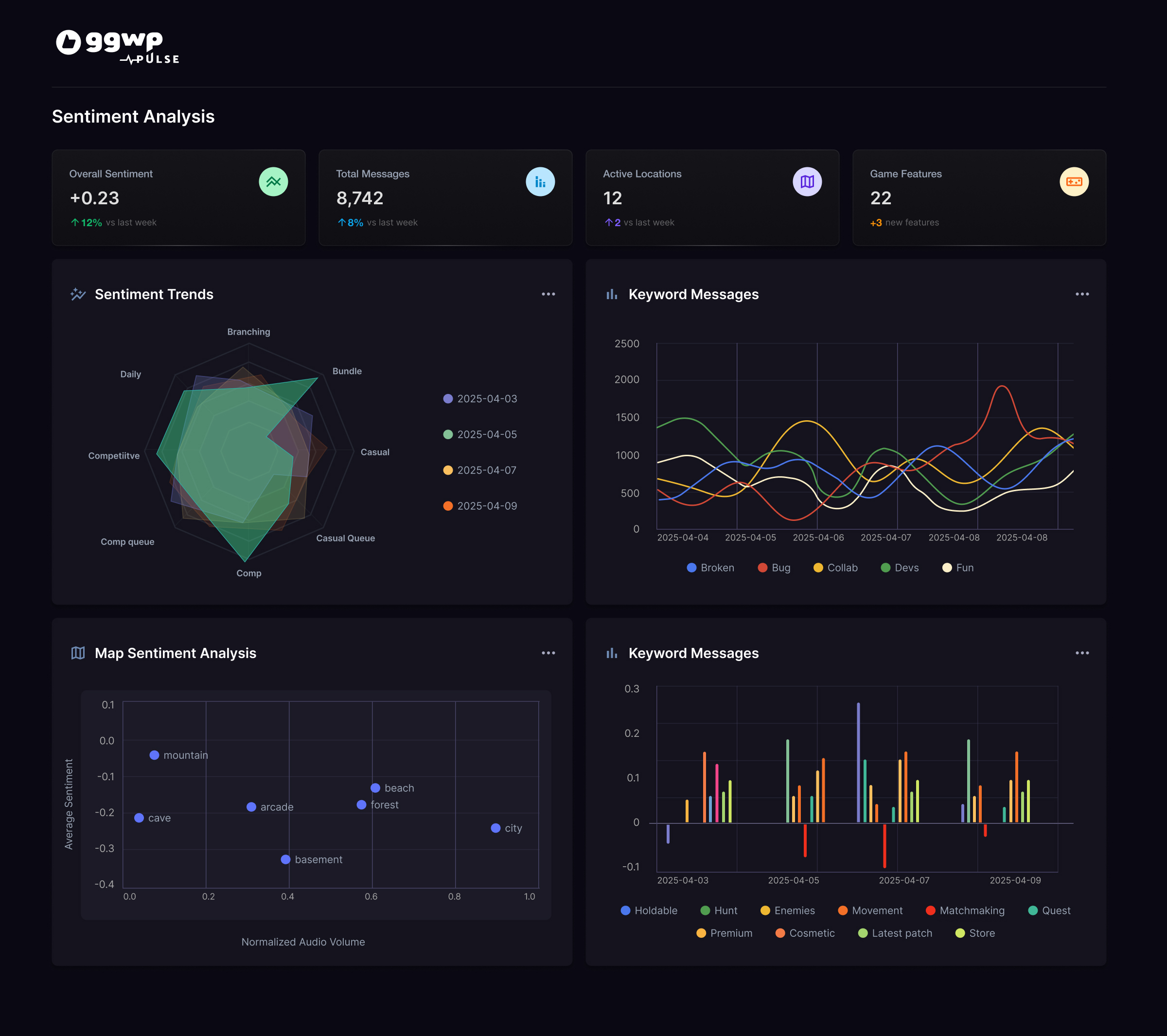GGWP, which has used AI for moderating player behavior in games, has expanded its offering with GGWP Pulse, a sentiment analysis tool which is another cool use for AI.
So far, GGWP has used its AI tech for making sure players behave well in online games and to build healthy communities for brands. But now GGWP is a new product which delivers a real-time insights and sentiment analysis, said Dennis Fong, CEO of GGWP, in an interview with GamesBeat.

Unlock premium content and VIP community perks with GB M A X!
Join now to enjoy our free and premium membership perks.
![]()

![]()